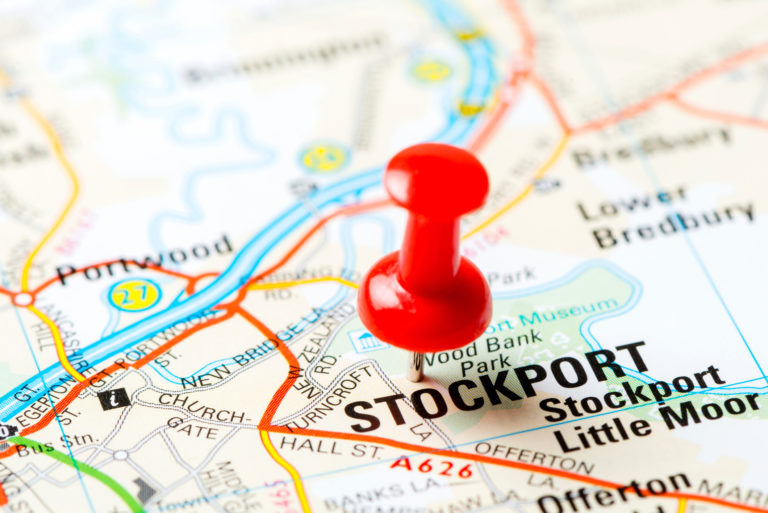More buyers than ever are investing in leasehold properties in the north west of England, with some of the region’s smaller towns and cities leading the way.
Leasehold property sales – the vast majority of which are flats as only a small portion of houses are sold on a leasehold basis – have soared in the north west of England, according to new analysis from easyMoney, with the region recording the second highest proportion of leasehold transactions in the country.
Of all property sales recorded across England and Wales over the past 12 months, 22.8% of them were on leasehold homes. But in the north west, a huge 35.1% of all property purchases during the period were leasehold sales, well above the national average.
This was beaten only by London, where flats generally dominate the property market due to both space constraints and affordability, and the capital is home to the lowest level of freehold property in the country. There, more than half of all purchases (50.4%) were leasehold.
North west in a strong position
As Jason Ferrando, CEO of easyMoney, points out, the north west is “fast developing into a hub of economic activity, explaining why workers are buying leasehold apartments in the region”.
Thanks to major investment, regeneration and transport improvements being focused on the region, particularly in cities such as Manchester and Liverpool, as well as the surrounding towns, the north west is competing with London in terms of its economic growth. The jobs market is increasingly attractive there with many large corporations relocating to parts of the north west.
However, the research also found an interesting trend where leasehold sales were the highest in “traditionally less fashionable towns and cities in the north west”, says Ferrando. This includes Bolton, where 68% of transactions were leasehold sales, followed by Oldham (66%), Burnley (65%), Hyndburn (64%), Bury (60%) and Salford (69%).
Due to the fact that leasehold properties – which are predominantly flats – tend to be purchased by buyers such as young professionals, as well as property investors honing in on areas of high tenant demand, it seems these areas are becoming key locations for workers to live in.
Ferrando notes: “The success of Manchester and Liverpool has been a trend for a few years, but it seems this growth is spreading to other traditionally less fashionable towns and cities in the north west, with Bolton leading the way when it comes to the highest proportion of leasehold purchases outside London.”
Leasehold in London
While London remains the leasehold capital, it is also the most expensive place to buy in the UK, and workers have increasingly found themselves priced out of the property market there. This is an added incentive to consider places like the north west, with better affordability and a strong standard of living.
While house prices in the north west have performed better over recent years than many parts of the south, including London where the market has stagnated, property there still comes at a fraction of the cost of the capital.
Can leasehold be problematic?
The leasehold model has been very much in the public eye recently, with housing secretary Michael Gove claiming it is an “outdated, feudal system that needs to go.” The government is currently considering measures to overhaul the system and make it easier for leaseholders to buy the freehold.
Most of the problems arising with the leasehold system have involved new-build houses specifically, which were being sold with escalating ground rents. However, the rules have now changed thanks to the introduction of the Leasehold Reform (Ground Rent) Act 2022 on 30th June last year.
The Act states: “Any ground rent demanded as part of a new regulated residential long lease where a premium is paid may not exceed more than one peppercorn per year. Most new leaseholders will not be faced with financial demands for ground rent.
“The Act also bans landlords from charging administration fees for collecting a peppercorn rent. If a landlord charges ground rent in contravention of the Act, they are liable to receive a financial penalty between £500 to £30,000.”
In the UK, it is extremely common for flats and apartments to be owned on a leasehold basis, with a freeholder or landlord being responsible for the building while the individual leaseholders are responsible for their flats within in. It is thought that around 95% of owner-occupied flats and 70% of privately rented flats are leasehold.
Leaseholds can be problematic, though, if the length of time left on a lease falls below 80 years. After this point, it can be extremely difficult to get a mortgage, which can seriously affect the value of the property. In some cases, the lease can be extended at a cost, but it is important to be aware of this before making a purchase.










